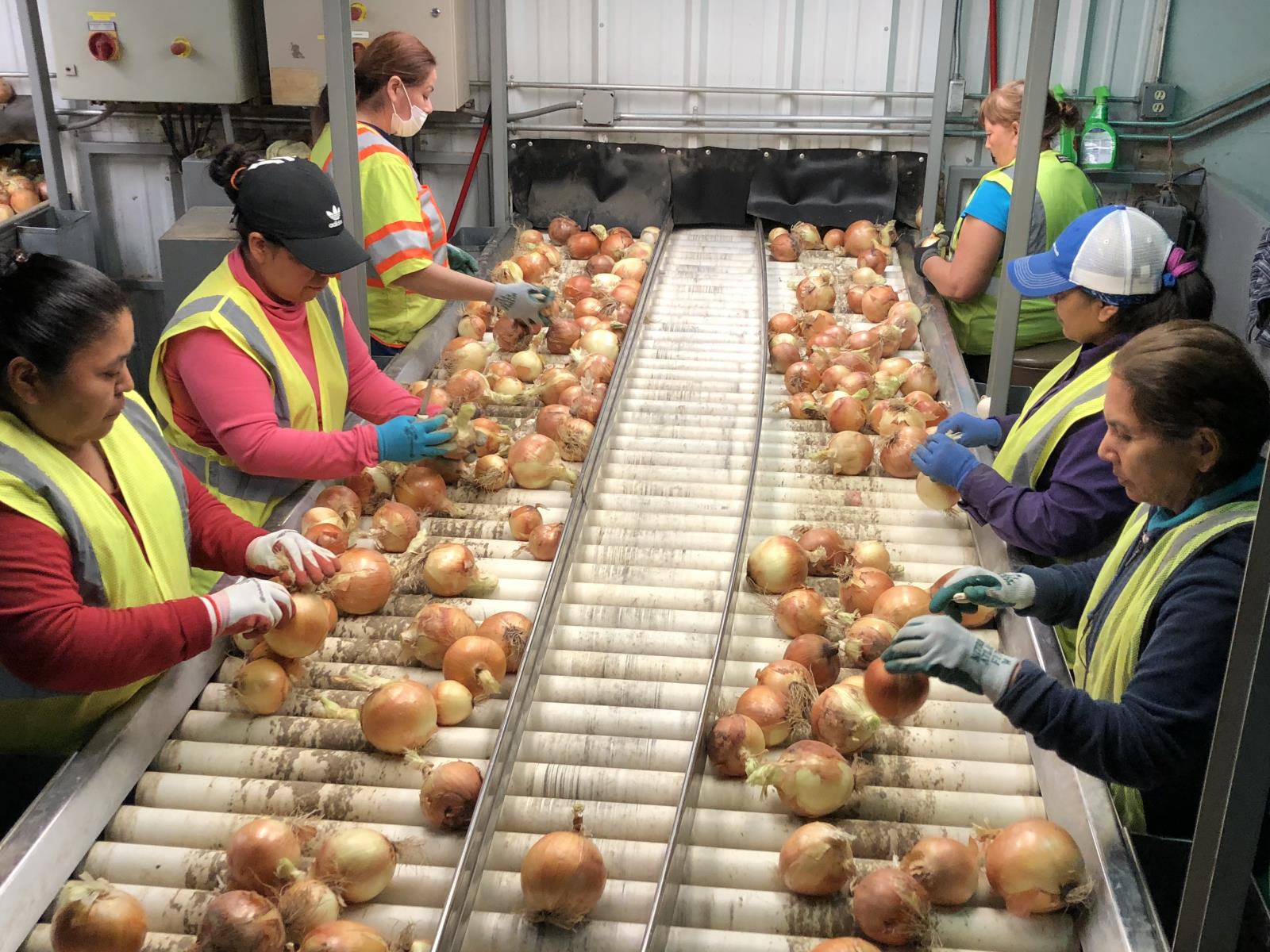Ag, food sectors have huge impact on economy

POCATELLO – While farmers make up only about 1 percent of the nation’s total population, the expanded impact they have on the overall economy is massive, according to a nationwide economic impact study that shows the food and agriculture sectors are responsible for a huge amount of economic activity.
The study’s research, which can be seen at FeedingTheEconomy.com, was commissioned by 23 food and agriculture organizations, including American Farm Bureau Federation.
The study shows that one-fifth of the nation’s economy is directly or indirectly related to the agriculture and food sectors.
It found that the industries are responsible for 46 million jobs in the nation, which is one of every four American jobs, as well as $2 trillion in wages, $913 billion in taxes and $154 billion in exports.
The total economic impact of the food and agriculture industries was estimated at $7 trillion.
The study also breaks down the impact by state.
In Idaho, the combined food and agriculture industries are responsible directly and indirectly for 370,532 jobs, $16.8 billion in wages, $6.5 billion in taxes and $786 million in exports.
Idaho Farm Bureau Federation President Bryan Searle, a farmer from Shelley, said many people involved with the agriculture and food industries already know their sectors play an important role in the state and U.S. economies.
Even then, he said, the numbers shown by the study are eye-popping.
“The study shows that the nation’s agriculture industry, in conjunction with the food sector, plays a vital role in the state and national economy,” he said. “I encourage farmers, ranchers and others to share the results of this study because they really do show how critical the ag industry is to Idaho and the nation.”
“While more and more Americans are becoming interested in the food they eat, we must ensure they know the value of what farmers and ranchers do,” Sen. Pat Roberts, R-Kansas, chairman of the Senate Agriculture Committee, stated in a Feeding The Economy press release. “Everyone can benefit from knowing of the great contribution of agriculture to our economy, to our rural communities, to our security, to our culture and yes, to our natural resources. We need resources like the FeedingTheEconomy.com report to better tell this story.”
In the press release, House Agriculture Committee Chairman Collin Peterson, D-Minn., said a lot of people don’t understand the significant impact that agriculture has on their lives.
“The more resources farmers and ranchers have at their disposal to help connect with folks in their community and talk more about the economic significance of farming and ranching, the more those much-needed conversations can take place,” he said.
The study captures the direct impact the food and agriculture sectors have on the economy as well as the indirect economic activity they generate.
“Together, these impacts have a multiplier effect on the already formidable direct impact of food and agriculture,” the news release states.
Excluding the multiplier effects, these two sectors are directly responsible for 22.8 million American jobs, the report found.
“These food and agricultural jobs represent total wages of $729 billion, federal tax contributions of $537 billion, state tax contributions of $376 billion and generate economic output of $2.1 trillion – proving that agriculture and its related industries have a sizable impact on the U.S. economy,” an American Farm Bureau Federation analysis of the study concluded.
According to the AFBF analysis, the underlying data used for the study was based on 2016 employment and output data, and industry growth rates were used to estimate 2019 levels.
Still can't find what you are looking for? Find by topic:
- County Presidents & Board Information
- County Resource Page
- Delegate Form
- Discount Programs
- Discussion Meet
- Discussion Meet - High School
- Education Programs
- Events
- Excellence Award (YF&R)
- Expense Voucher
- Flickr- Photos
- Gem State Producer
- High School Discussion Meet
- High School Speech Contest
- Hope in Idaho Ag
- House of Delegates Credentials Form
- IFBF Board of Directors
- IFBF Staff
- Insurance
- Issue Advisory
- Legislative Action Program
- Legislative Issues
- Library
- MAC Trailer
- Magazines
- Map My Benefits
- Member Benefits
- Member Discount
- Membership Application
- Mental Health Resources
- Mission Statement
- Moving Agriculture to the Classroom
- Newsletter Sign up
- News Releases
- News Room
- Open Range Law
- Photo Contest
Thank You to Our Partners









